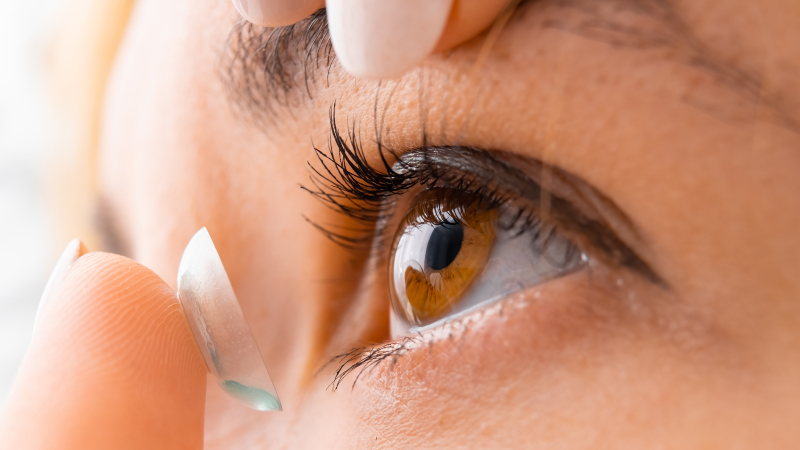Frequently Asked Questions about Contact Lenses
Contact lenses offer wearers freedom from the constraints of traditional eyeglasses. However, navigating the vast array of options and information can be daunting. Below, Bailey Weber Wisner’s Dr. Kosvitch aims to provide clarity and insight for both beginners and experienced lens wearers alike.
How do you choose between contacts and glasses?
Body: In most cases, your eye doctor will give you, the patient, the choice! There is a certain amount of responsibility that the lens wear must take on: learning to insert, remove, and care for their lenses responsibly. If you are unmotivated to do so, contact lenses may not be right for you.
How do you pick the right contact lenses?
There are a variety of factors including refractive error, age, lifestyle and expectations. Not everyone can get perfect vision at all distances out of contact lenses, so it is important to manage your expectations and be aware of your needs. Not all contacts are the same. There are countless prescription combinations and brand/material manufacturers. The best option is rarely something that is offered to purchase on-line without a thorough eye exam. If you have questions about starting wear or switching types of contact lenses, have a conversation with your eye care professional at your next exam.
What are the benefits and disadvantages of daily vs. monthly contact lenses?
Daily contact lenses are the easiest to care for and are often the most comfortable. However, they are also more costly and do not come offer as wide a range of options. If worn properly, monthly lenses can be a good alternative for those looking to save money who are wearing their lenses every day.
How does your prescription affect your ability to use contact lenses?
Most people can get similar vision with either traditional eyeglass or contact lenses, but in some cases, one is better than the other. Multifocal glasses provide more crisp vision than multifocal contacts. People with significant differences in refractive error between the eyes typically do better with contacts. There are other examples worth discussing with your eye care provider. The key is to have realistic expectations so you can make an informed choice.
What advice would you give from someone switching from glasses to contact lenses?
In most cases, it is not an either/or scenario. People can switch back and forth during a given week or day depending on their needs or how their eyes are feeling. Some people wear lenses only for physical activities and primarily wear glasses the rest of the time. Some people wear their lenses primarily and have glasses to wear over their contacts to enhance what the contacts can provide. For people primarily wearing contacts, it’s recommend to take them out a few hours before bed time and switch to glasses. This gives their eyes a break and lessens the odds of falling asleep in them.
Are there any vision conditions that would prohibit someone from wearing contact lenses?
Dry eyes, depending on the severity, can often be prohibitive and lessen or eliminate the ability to wear contacts. Many other ocular surface inflammatory conditions can limit wear or necessitate specialty lenses. However, the majority of people can usually find some lens option that will at least work on a part-time basis.
